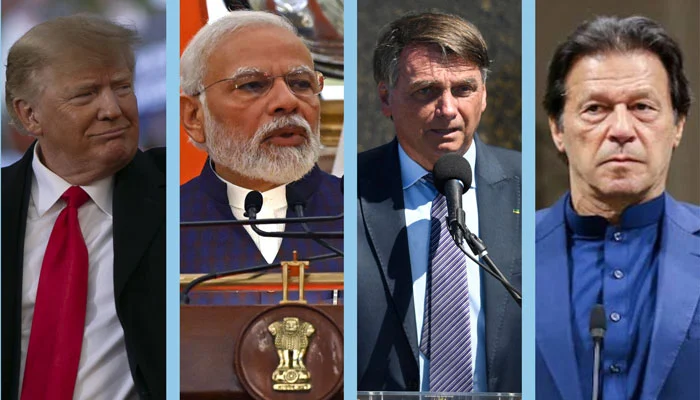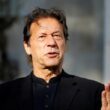Mishaal Arshad CM Underground News
To demonise political opponents is giving a license to violence. In the past decade, we have witnessed destructive trends emerging in politics, where populist leaders attacked their opponents through hate speech. This, unfortunately, resulted in large scale violence based on sectarianism, classism, sexism, and religion.
One example that comes to mind is Donald Trump, otherwise known as “the agent of global hate” as he urged his supporters to march on the Capitol in a provocative speech, telling them to “fight like hell”, following this, the eruption of riots of the worst kind is a history. Trump’s own Secretary of Defense, Chris Miller, blamed Trump’s remarks for the riot.
Incendiary rhetoric from political leaders against their political opponents, minority groups, and other targets is quickly magnified on social media. According to Brookings Institution, “Anti-Muslim discourse prompted by remarks by candidate Trump grew on Facebook and other social media sites in 2016. This, in turn, led followers to increase their anti-Muslim tweets and to get more attention from cable news channels. In subsequent days, hate crimes against Muslims increased by 32%.”
Trump, though very prominent but unfortunately is not the only example of a power-hungry narcissist and anti-intellectual provocative character. Narendra Modi of India and Jair Bolsonaro of Brazil come to mind, who through their polarised views and hate speech, have contributed greatly to the reservoir of hate deployed to further polarise societies.
Pakistani society got the taste of this through Imran Khan. His refusal to concede defeat in the vote of no confidence, a democratic and constitutional way of power transition, proves his defiance against the supremacy of parliament, the Constitution, and rule of law. It brings home that the Khan who, decades ago, was revered across the nation as a hero is now identified by his legacy of entitlement, vitriol, and arrogance.
Unfortunately, of all the incredible things that Khan could achieve for the country with his cult following, all he did was create a culture of toxic violence, intolerance, vindictive politics, and bad-mouthing. His harmful practice of engaging his followers in narratives of hate, and the willingness of his voters to consider those narratives, remained the most counter-productively successful strategy since the beginning of his entire political career. He understood the politics of hate, well.
For someone who spoke about the rule of law in TV interviews but called for civil disobedience the very next day of the popular sit-in, in 2014, his grave manipulation of the public sentiment attached to him and his party became very much evident.
His attack on parliament along with party workers, again in 2014, was a testament to Imran’s pursuit of intolerance and violence as a means to undermine the dignity of parliament and supremacy of the Constitution.
Calling names to his opponents like “diesel, boot polish, cherry blossom, ganja” and more laid bare his ingrained bitterness. Unfortunately, the Oxford graduate did not stop there and used names like “Zinda Laashen” (living dead), donkeys and sheep for the people of Pakistan. Certainly, the people of Pakistan expected better from him.
The leader’s narcissism and language encouraged the PTI social media team to actively carry out malicious campaigns. He pitched one Pakistani against the other. He made youth believe in might is right and unfortunately, the price of it will be paid by the generations to come.
His legacy unfortunately is tainted with hate politics and narcissism. With unfulfilled promises and entitlement, and manipulation of religious sentiments, his legacy is a legacy of polarisation.
For a country like Pakistan, that’s social fabric is tattered along the lines of ethnicities, sects, religions, caste, and creed, hate-mongering is the last nail in the coffin that we could have imagined. As Khan reboots his politics of hate, especially amongst youth, let’s hope that this time, better sense and rule of law prevails as we become cognizant of the fact that just because we can’t see the smoke yet, doesn’t mean the fire won’t reach our doors any later.
The author is a former news reporter and currently works as a communications consultant.








